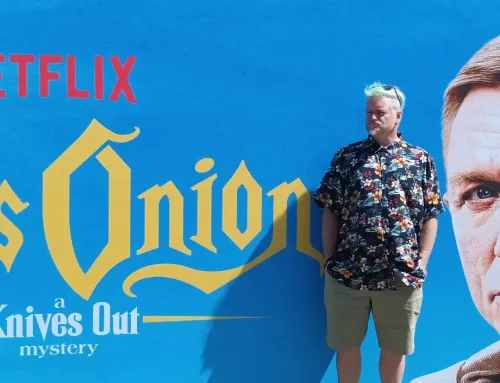What does it mean to worship as a South African? As an African?
Is there any difference to worshipping in any other place in the world? We do tend to import our worship songs from Americaland [Bethel, Jesus Culture], the United Kingdom [Redman, Tomlin, Hughes] and Australia [Hillsongs, Planetshakers] and if worship is just worship then that should be fine, right?
i posed this question and questions like it in this Facebook Live video that i did on Monday. So if you haven’t watched that yet, that may be a good place to start, and there were some helpful questions, statements and thoughts in the comments of the video.
For me a lot of the frustration with worship songs in general, the majority of which are imported, are that they don’t speak to [or maybe from] the context we are singing from. Unlike many of the Psalms, they don’t seem to take stock of the fact that the world is largely in a mess, that life can be hard, that faith can be a struggle and that we don’t always feel like singing.
The Lie of Worship
If you were to take a Sunday service song list and read through the lyrics and then try to gauge the condition of the people singing, you would most likely surmise that all is well and we are doing great and life is wonderful and we just want to praise God with everything we have.
Whereas i find a lot of David’s Psalms in particular had this vibe of “Life sucks, God, it’s so hard and everything is against me, YET WILL I TRUST IN YOU!”
A kind of DESPITE form of worship which is not dependent on circumstances but does acknowledge them. i don’t see this in many of our worship songs today. Or maybe any of them? Is anyone else noticing this?
i defined ‘Singing worship’ in the video as ‘Prayers put to music’ because in essence that is what singing worship is, right. We have just added music to prayers that we are saying to God, about God, to people about God, with people to and about God.
But if that is true, then we really need to examine some of the songs we sing, because we say words in worship songs that we would never dare to utter in a prayer. If you don’t believe me, do a test this Sunday – read all the lyrics of all the songs and tell me if you agree 100% – i doubt you will.
Another problem that needs to be addressed is the narcissistic nature of sung worship. As i am writing this piece i am busy listening to Matt Redman’s ‘Glory Song’ album and the song Place of Praise just came on:
Through every changing moment
Find me at Your throne
In every shifting season
Find this heart bowed down
Through every stormy tempest
And every circumstance
When life is at its brightest
Or when shadows gather roundI will not bring that which costs me nothing
I will not bring that which costs me nothing
If the highest praise is a sacrifice
And the greatest song is to give my life then
I will not bring that which costs me nothingWhen everything is easy
Any heart can sing
But our deepest cry of worship
Will be heard within the flame
So I’m breaking through the silence
To bring this broken song
And You’ll hear my praises rising
Rising forevermoreAnd I’ll find my way to the place of praise again
Lord, I’ll find my way to the place of praise again
The key chorus line ‘I will not bring that which costs me nothing’ references a beautiful story hidden in the end of 2 Samuel, in chapter 24 where this interaction happens between King David and a man called Araunah, who owned a threshing floor David wanted to use to build an altar to God:
21 Araunah said, “Why has my lord the king come to his servant?”
“To buy your threshing floor,” David answered, “so I can build an altar to the Lord, that the plague on the people may be stopped.”
22 Araunah said to David, “Let my lord the king take whatever he wishes and offer it up. Here are oxen for the burnt offering, and here are threshing sledges and ox yokes for the wood. 23 Your Majesty, Araunah[d]gives all this to the king.” Araunah also said to him, “May the Lord your God accept you.”
24 But the king replied to Araunah, “No, I insist on paying you for it. I will not sacrifice to the Lord my God burnt offerings that cost me nothing.”
That is largely missing from much worship in the church today – people leave churches because they don’t like the worship or “the worship did nothing for me” [you know, like worship is meant to?!]
Back to Matt Redman’s song there is talk of sacrifice:
If the highest praise is a sacrifice
And the greatest song is to give my life then
I will not bring that which costs me nothing
We tend to spend too much time in church gatherings trying our best to make the worship appeal to people and not making sure that it appeals to God. We would perhaps do well to go back and read the story of Cane and Abel in Genesis 4 to see what can happen when we start off by giving less than acceptable worship to God.
Much of the rest of this song is speaking to what i was saying before in terms of things not looking good or being good, yet worship still being our response:
When everything is easy
Any heart can sing
But our deepest cry of worship
Will be heard within the flame
So I’m breaking through the silence
To bring this broken song
And You’ll hear my praises rising
Rising forevermore
Sho, i do think Matt Redman is an exception though [and there are others]. i have met him on a number of occasions in different circumstances [the first when i interviewed him as a CCFM Christian DJ and was such a complete punk asking questions like, “If you were a vegetable, what vegetable would you be?” and all he wanted to do was talk about Jesus] and he is one of the most humble people i have ever met. His gaze is constantly turned to God which is why i believe he is so good at helping lead people in worship.
Matt Redman worships and so we worship with him. He worships when he writes his songs and so his songs help us to worship.
Hope is Marching On
The next song has come on and it speaks even more to the real:
Long can be the night of our struggle
Deep can be the wounds of this life
But hope lives on in spite of our trials
And these soon shall pass
Yes, these soon shall passYou take the world off my shoulders
The weight of it all off my shoulders
You breathe Your hope, You watch over
And You take the world,
all the weight of this worldThere are times of tears and of trouble
We wander through the darkness of night
But hope will shine inside of this battle
And this too shall pass
Yes, this too shall pass
But until it doesAnd Your love, it keeps on lifting me
And Your hope is marching on
And Your mercy surely carries me
And Your hope is marching on
This is what i am talking about. Who else is writing songs like this?
Let’s bring it home
But let’s return to my original question which was about South Africans – and Africans – writing songs and seeing those sung around the country. We Will Worship Movement is one group that i know who are doing that. Please let me know in the comments below who else locally is writing the kind of songs that play well into our context to help us worship God in a more authentic way.
Another thing that overseas worship song writers cannot do for us is write songs in our languages. Beyond English. i have personally been exposed to Xhosa, Zulu, Swahili and other language songs since the days of Scripture Union camps and Student Christian Association conferences and some of my favourite songs to worship with are not in english.
One of the songs that has moved me more than most is ‘Dula Lerona’ by Paul Mpete. Simple in content but heavy in connection, that song never fails to transport me to a place of feeling like i am standing before God in worship. i honestly believe we are missing out if we only sing worship songs in english.
At St. Johns where i hang out on Sundays we have a lot of members from other African countries and so we regularly get to hear small groups singing in languages we are not used to, and it truly is a thing of beauty.
So where are the people who are writing locally, writing in local languages and from the context that we share, which includes songs of lament or crying out to God, of repentance, of sacrifice?
One of the things i did straight after the Facebook Live video was to start a Facebook group called South African Worship Vibes which you can ask to join if you want to engage further in this conversation. Please invite your worship leaders, pastors, band members or anyone else who might be interested to jump in there and start engaging. i am hoping we will see some song collaborations birthed in that group as well as just sharing information about who is already doing these things.
What are your thoughts? Do you think it’s okay that we only worship to Jesus Culture, Hillsongs and other international groups? Or is there something in having local writers and bands coming up with contextual songs which help us to worship together as a nation?







Leave a Reply